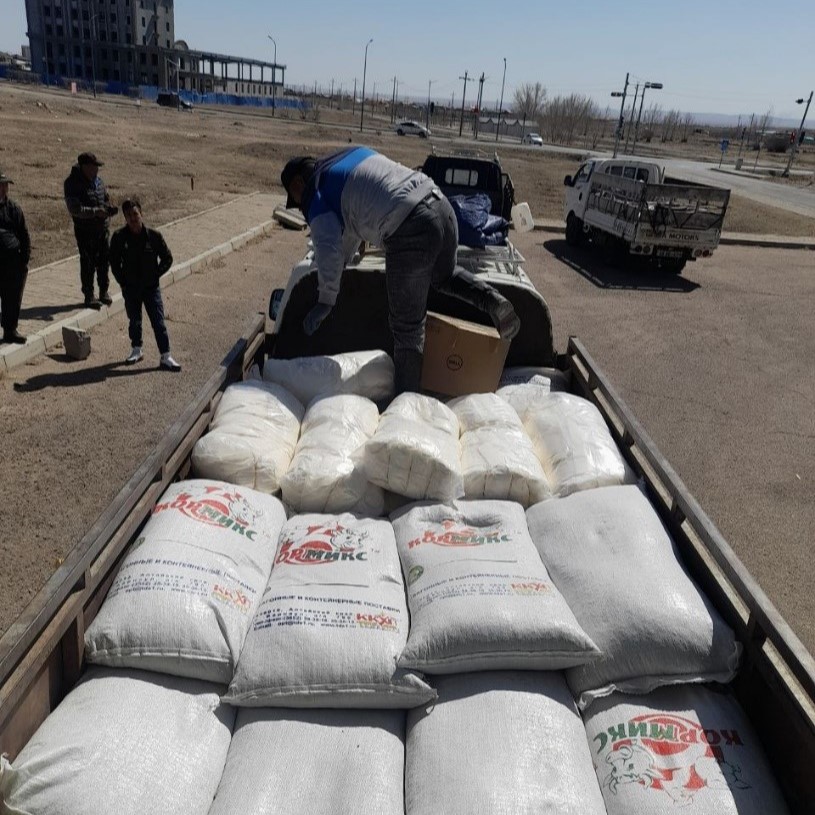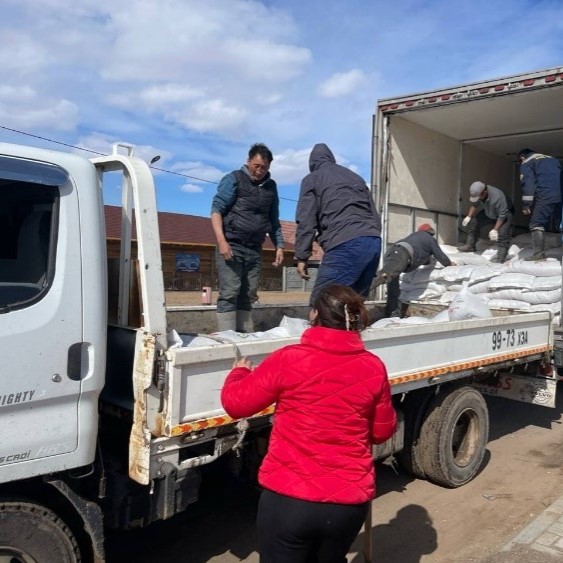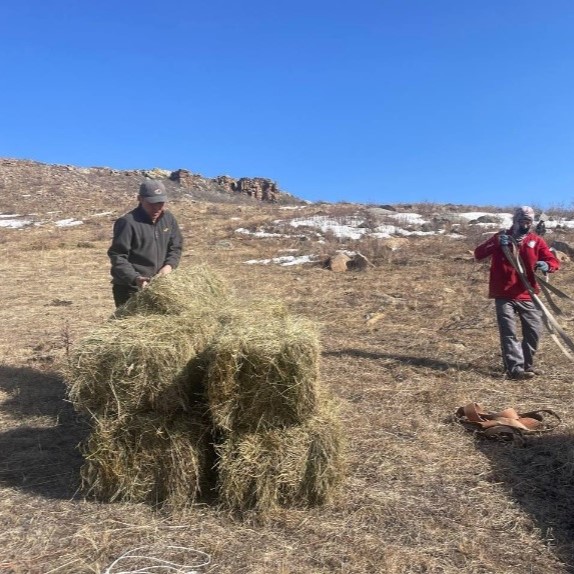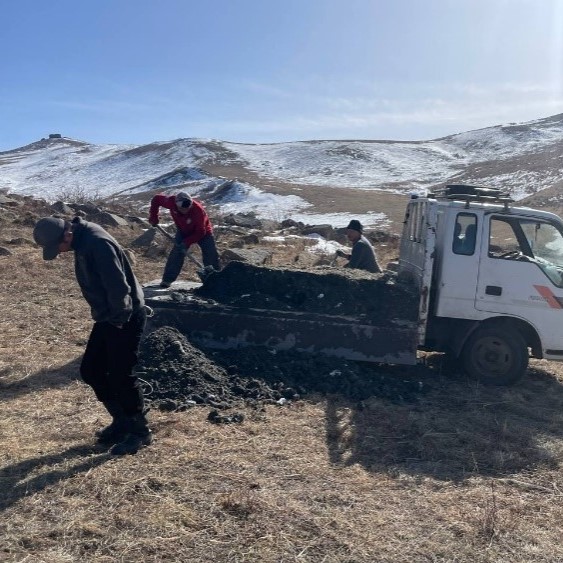With incredibly kind offers and contributions from our international members and partners, the SFA was able to deliver our second phase of aid throughout April 2024, providing much-needed support to the herders of our member cooperatives who had been affected most by the Dzud disaster this winter and early spring.
First Phase of Support
In response to the devastating Dzud situation in Mongolia, the SFA team begun our first phase of support throughout February and March 2024, appealing to all our member factories, not only in Mongolia, but reaching out to all our international members and brands to join the cause.
During this first wave of response, the SFA Mongolia team delivered the below to 8 cooperatives in 5 soums in the Dornod, Sukhbaatar, Khentii and Arkhangai provinces:
- 60 tons of protein feed.
- 400 litres of beneficial microorganism liquid supplement.
- 560 fuel vouchers worth 20,000 MNT.
- 250 blankets / jackets for newborn goats and animals.
To learn more about what Dzud is, the different variations, how it affects people, animals and the environment, take a look at our previous article titled Dzud Hits Mongolia | Devastating Conditions for Livestock & Herders.


Second Phase of Support
Throughout April 2024, and with continued support from SFA member brands and companies internationally, the SFA Mongolia team delivered further aid and provisions to 300,000 livestock animals of 1,760 herding households in 20 cooperatives and across 12 soums in the Khentii, Sukhbaatar and Dornod provinces, which had suffered the the most from the Dzud disaster. The aid delivered during the second phase consisted of:
- 26,880 kg of mineral fodder.
- 1,460 blankets / jackets.
- 4,380 kg of powder milk supplements for newborn goats and animals.
- 14,200 kg of flour.
- 10,000 kg of rice.
According to this report on the Dzud livestock loss in Mongolia, the country has suffered a loss of 11.46% livestock as of the beginning of May 2024, with a total number reaching a devastating 7.41 million. This data was issued by Mongolian government organisations, such as the Ministry of Agriculture, Food and Light Industry (MOFALI), the National Agency Meteorology and the Environmental Monitoring (NAMEM), the State Emergency Commission, the United Nations Humanitarian Country Team (HCT) and the United Nations Office for the Coordination of Humanitarian Affairs (OCHA).
Wildlife Support
Protecting biodiversity and conservation of habitat is one our five key principles of the SFA standards. Due to the harsh climate conditions, herbivore wildlife across many of the regions of Mongolia were severely affected with the lack of vegetation available for grazing leading to high death rates. Many of the animals ventured down from the mountains in search of food, travelling long distances to do so. Therefore, alongside provisions for herder communities and their livestock, the SFA Mongolia team transported and distributed 2,000 kg of nutritious grass hay bales and 2,000 kg of salt minerals to key corridors for native herbivore wildlife, such as red deer, gazelle and roe deer.


Continual Support
From everyone at the SFA, we would like to say a huge thank you for the generous donations and kind offers of support from our members and partners. We are proud to announce that we have raised over £153,000 so far for the SFA’s Dzud emergency fund effort.
“Alongside the emergency fund to help with the immediate disaster relief, we have established a Community Development Fund to support the recovery of herders affected by climate crises, such as dzud. The longer-term planning is crucial to strengthen the capacity and capability of herder organisations in disaster preparedness, risk management and improved governance. The impacts of climate change are increasing in intensity and frequency across the country.”
Una Jones, SFA CEO & Founder.
As part of our next steps and actions, we are planning to carry out a comprehensive socio-economic research study in understanding climate risk impact, with specific focus on dzud risk and diverse drivers of herder resilience, as a critical way to better support herder communities and build better systems changes holistically.
If you would like to learn more about the SFA’s efforts in supporting herders and building climate risk resilience, then please do reach out to the team below. Additionally, we will be hosting a Disaster Risk Committee Consultation meeting and are encourage anyone who would like to support herder’s climate risk resilience to join the discussion and get involved. Please email the team at info@sustainablefibre.org to find out more.

Tamir Bud
SFA COMMUNICATIONS OFFICER
4 June 2024

